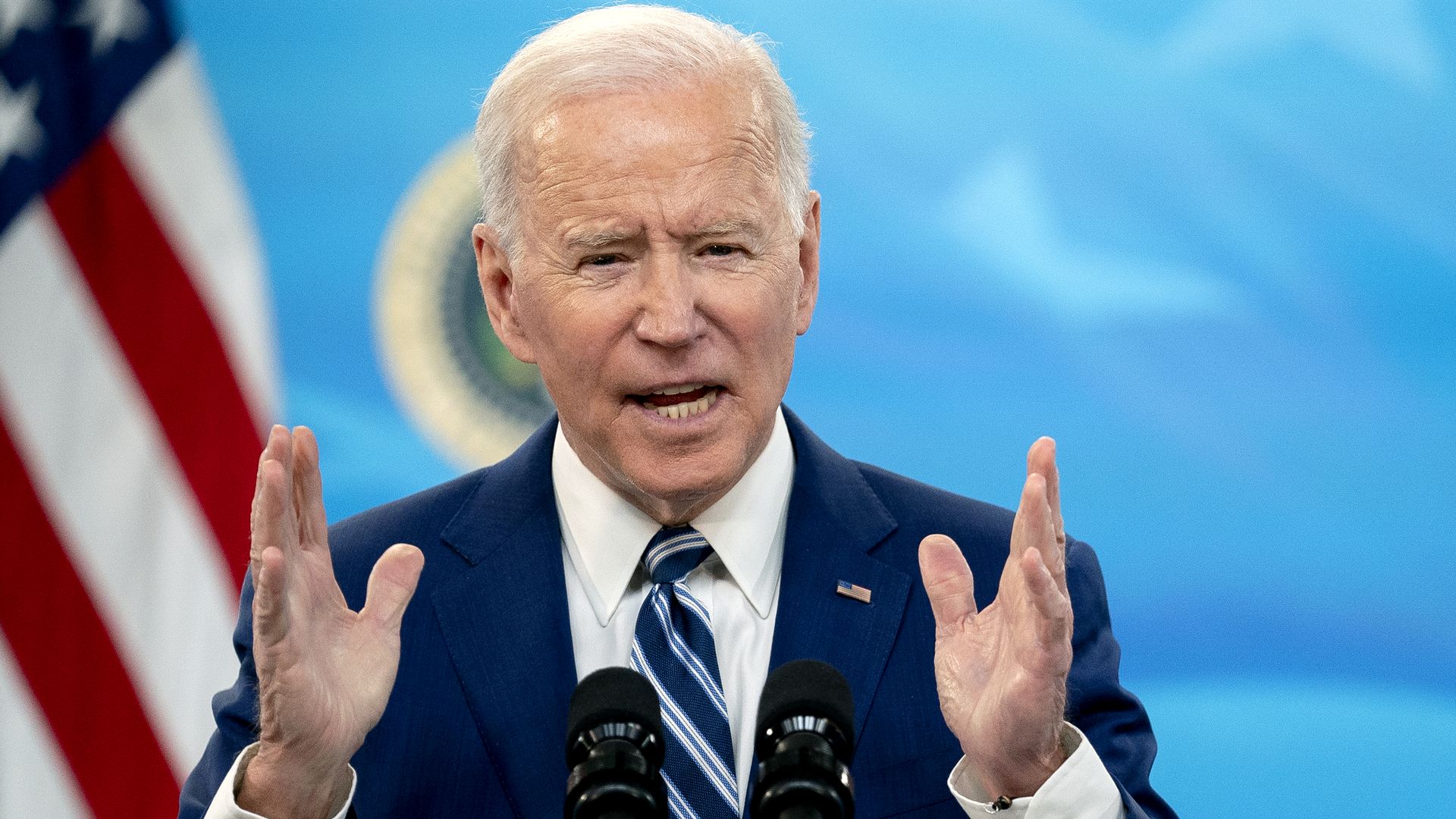Biden's true tax priorities
Add Axios as your preferred source to
see more of our stories on Google.

(Photo: Stefani Reynolds/CNP/Bloomberg via Getty Images)
President Biden is preparing to go to the mat for four tax increases worth about $1.8 trillion to help pay for his infrastructure and social safety net plans, advisers tell Axios.
Driving the news: Biden will outline an array of tax proposals beginning on Wednesday — an opening bid ahead of months-long negotiations mostly within the Democratic Party — but these are his priorities.
By the numbers: The biggest-ticket item would raise the corporate rate from 21% to 28%. That's worth $730 billion over 10 years, according to the Tax Policy Center.
The other three would:
- Impose a global minimum tax on profits from foreign subsidiaries: $550 billion.
- Tax capital gains as regular income for the wealthy and tax unrealized capital gains at death: $370 billion.
- Return the top individual rate for those making more than $400,000 to the pre-Trump rate of 39.6%: $110 billion.
The intrigue: During presidential campaigns, revenue estimates are more art than a science and estimates vary widely. But once proposals are sent to Congress, the numbers are whatever the Joint Committee on Taxation says they are.
- Republicans are unlikely to raise taxes in the middle of a pandemic. That's why Biden may be forced to pursue some plans via budget reconciliation, which requires only a simple majority in the Senate, not filibuster-proof numbers.
Between the lines: Democrats close to the White House don’t expect Biden to fight as hard for other expected proposals, including one that could raise some $740 billion by imposing new Social Security taxes on the wealthy.
- His campaign plan to impose a 28% minimum rate on the wealthy, which would raise $220 billion, is unlikely to cross the finish line.
- And making it harder for small businesses to claim deductions, which would bring in $140 billion, will likely encounter serious roadblocks.
- Changing the ways estates are taxed, which would raise $220 billion, may not make it into the final legislation.
The big picture: Biden plans to unveil his infrastructure plan in Pittsburgh on Wednesday, with spending plans for the so-called caregiver economy to be unveiled in a couple of weeks.
- Inside the White House, officials like to say Biden is giving two speeches for one holistic agenda. They are indifferent about how many packages it's divided into to get through Congress.
- But White House press secretary Jen Psaki set a marker on Monday when she promised that Biden would pay for every dollar of new infrastructure spending with a corresponding tax increase. “The president has a plan to fix our infrastructure and a plan to pay for it,” she said, later clarifying that she meant it would be paid for "over time."
Be smart: Biden’s approach to taxes is both ideological and political. He views increasing taxes on corporations and the wealthy as a fundamental matter of fairness and a way to reduce income inequality.
- But moderate Democrats could revolt, and Senate Majority Leader Chuck Schumer may demand Biden cut taxes by removing the limits on state and local deductions.
The bottom line: Officials expect most of the haggling to happen on the corporate rate, both on the top percent and the global minimum for big multinationals.
- Repealing the Trump tax cuts on the wealthy is a much easier lift. But it raises, at most, around $150 billion — not nearly enough to pay for the massive infrastructure project that "Amtrak Joe" is contemplating.
